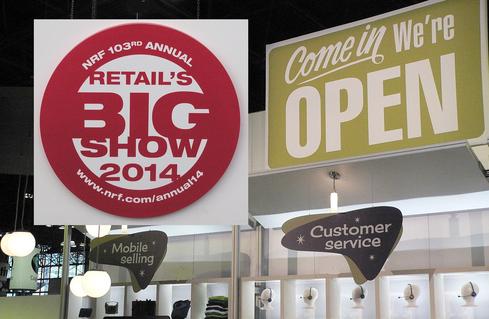Privacy Fears Hit Retailers' Big Data Analytics PlansPrivacy Fears Hit Retailers' Big Data Analytics Plans
Brick-and-mortar retailers plan to link in-store analytics with shoppers' mobile devices. Shoppers say not so fast.

Top 10 Retail CIO Priorities For 2014width=
Top 10 Retail CIO Priorities For 2014 (Click image for larger view and slideshow.)
Privacy will "almost certainly" be the leading big data issue this year as consumer advocates focus on controversial spying activities of the US National Security Agency (NSA), according to a new 2014 predictions report from global consulting firm Stratecast | Frost & Sullivan.
If this prediction holds true, it's unclear how it might impact big data efforts in the retail industry, particularly a new class of in-store analytics systems that use WiFi-enabled devices -- typically smartphones -- to gather information on customers' shopping and purchasing habits.
Why kinds of systems? Silicon Valley startup Euclid, for instance, sells analytics software that can uses a shopper's smartphone's WiFi signal to monitor his or her movements inside a store and in front of it.
It's not a stretch to suggest that consumers may react negatively to stealthy monitoring apps, despite the fact that their movements are closely tracked by online retailers as well. As public awareness of in-store analytics grows, a consumer backlash isn't out of the question.
"I talk with people who I didn't think thought about this much, and they say, 'Oh yeah, I turn my WiFi off when I go shopping,'" said Stratecast | Frost & Sullivan analyst Jeff Cotrupe in a phone interview with information.
[Why are you worried? See The Truth About Why Stores Track You.]
This type of shopper reaction, if common, will create a challenge for retailers, who have a lot to gain from in-store analytics, said Cotrupe, who manages Frost & Sullivan's big data and analytics global program.
"It's a great thing for retailers," said Cotrupe of mobile analytics. "It's one of these really, really essential things they need to be doing in addition to using customer data, crunching numbers, comparing different in-store sales, and scanning QR codes to indicate which flavor of peanut butter you like best."
Privacy-wise, there are at least three levels of mobile analytics in the physical retail space. Some systems require a customer opt-in, others don't.
Location-based analytics firm Digby, for instance, has the least furtive approach.
"Their claim to fame is that they help retailers, the brick-and-mortar folks, compete and survive in the age of Amazon," said Cotrupe. "They do mobile apps and barcodes and integrated mobile marketing campaigns."
Smartphone-toting customers have to download and install the Digby app, which makes the mobile analytics process relatively transparent. Customers get discounts, deals, and other perks for their efforts.
"That's the biggest level of involvement a consumer has with one of these (services)," said Cotrupe. "In order to interact, they have to download the app" and agree to the terms of service.
Nearbuy Systems, which was acquired recently by RetailNext, another in-store analytics provider, requires a little less effort on the consumer's part.
"You have to log into the retailer's WiFi network in order for their system to monitor you," said Cotrupe. "That's a slightly less level of involvement. You didn't have to download an app, and you didn't have to log in."
The opt-in approach sends a clear message to shoppers: "Hey, if you don't want to do this, don't log in," said Cotrupe.
The third -- and most stealthy -- level of WiFi analytics is Euclid's approach.
"You don't have to log in or take any proactive step," said Cotrupe. "If your (mobile) device has the WiFi turned on, and if that device comes within range of their system, they're able to monitor you."
This is the sort of big data operation that raises the hackles of privacy advocates, and understandably so. To ease critics' fears, Euclid and retailers plan to make their intentions clear, Cotrupe said.
"What Euclid does is make people very aware," he added. Retailers put signs in the windows to inform customers, who can scan a barcode to avoid being monitored by the WiFi analytics software.
While Cotrupe believes in-store analytics can help brick-and-mortar retailers, particularly smaller vendors, compete with online giants like Amazon, he's sympathetic to consumers' privacy concerns.
"I do appreciate the need for privacy," he said. "People have the right to turn that WiFi and location stuff off, and that's great."
Jeff Bertolucci is a technology journalist in Los Angeles who writes mostly for Kiplinger's Personal Finance, the Saturday Evening Post, and information.
Mobile, cloud, and BYOD blur the lines between work and home, forcing IT to envision a new identity and access management strategy. Also in the The Future Of Identity issue of information: Threats to smart grids are far worse than generally believed, but tools and resources are available to protect them. (Free registration required.)
About the Author
You May Also Like






